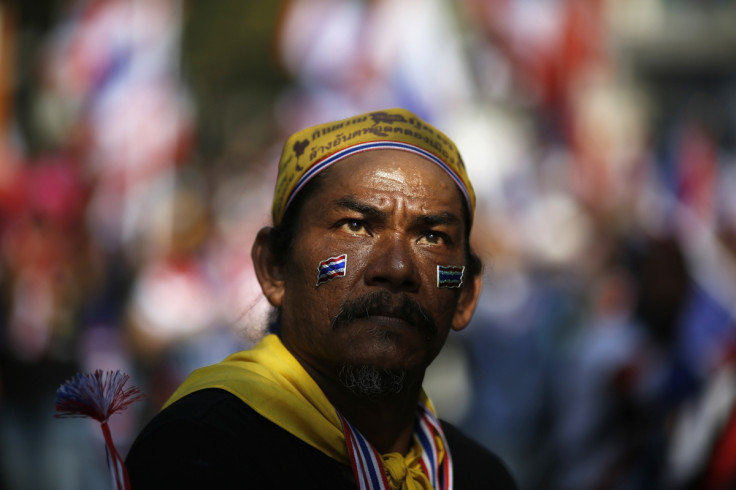Thai Protesters Suspected of Smuggling Arms into Bangkok

Anti-government protesters in Thailand are suspected to be smuggling weapons and explosives into the capital Bangkok, heightening fears of escalated violence amid political instability in the country.
The s intelligence agency found that a section of demonstrators has been bringing explosive devices under cover to the rally sites in a bid to scale up the protests, the powerful Thai army has said.
The military, which has so far remained neutral between the embattled interim administration and the protesters, has, however, not pinpointed the group behind the alleged weapons smuggling.
"An ill-intentioned group is mobilising weapons and bombs to stir up violence and attack its rivals," said army spokesperson Winthai Suwaree.
Although the spokesperson did not divulge the specifics, it is believed that lethal weapons are being smuggled into Bangkok.
Thailand has been grappling with serious anti-government protests that forced Prime Minister Yingluck Shinawatra to dissolve parliament and call for fresh elections.
The anti-government protests were originally set off by a controversial amnesty bill which might have allowed Yingluck's brother and former leader Thaksin Shinawatra to return from his self-imposed exile.
Although the initial weeks of the demonstrations were by and large peaceful, incidents of violence have begun to emerge in recent days.
The weekend saw a twin explosion in Bangkok during an anti-government rally, injuring at least 28 people. A similar incident on 17 January had killed a protester and injured 39 others.
Both grenade attacks targeted the main opposition group, the People's Democratic Reform Committee (PDRC).
The protesters and the interim administration have blamed each other for the escalating violence.
The army chief, who had said he would consider a coup against the government if the situation worsened, has insisted the situation is under control.
"The situation has not yet escalated to the point where we must get involved," said Prayuth Chan-ocha.
© Copyright IBTimes 2025. All rights reserved.






















